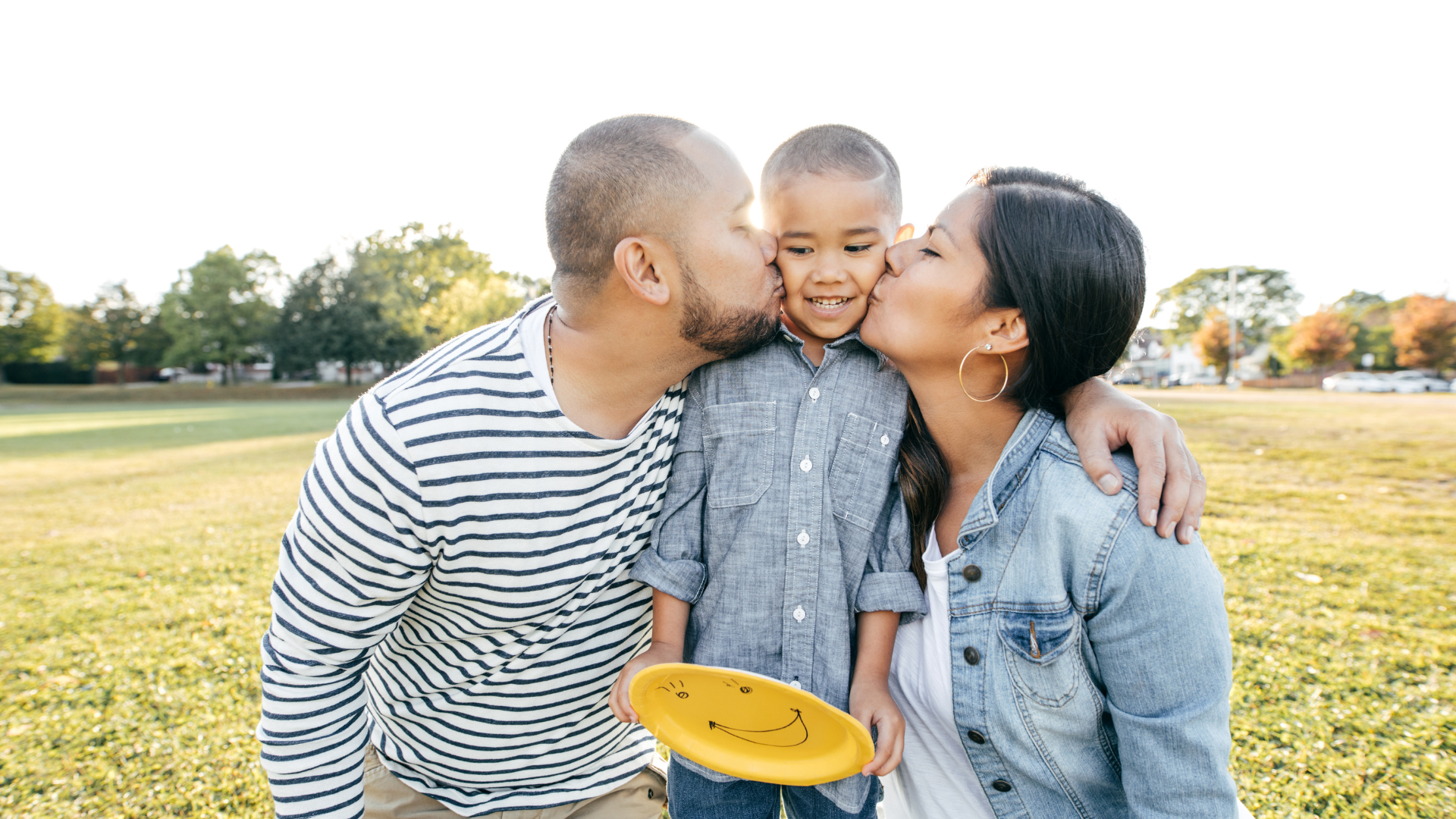In co-parenting families, it’s important for children to have a positive relationship with both parents. Helping kids through divorce can be tricky but here’s one thing you need to do: support your child’s bond with their other parent as much as realistic under the circumstances. It shows them that they are loved and supported by both of you. This can make a big difference in how they feel about family and themselves. Here’s why this bond matters and ways you can encourage a healthy relationship between your child and their co-parent.
Why Your Child’s Relationship with Your Co-Parent Matters
Children feel secure and confident when they know they are loved by both parents. Having a strong relationship with each parent helps them feel balanced and stable, even if their parents live separately. Helping kids through divorce by getting along with your co-parent is not easy but with some focus and effort often you can do a lot for them in this way. A positive bond with both parents can improve your child’s happiness, reduce stress, and help them do well in school and with friends.
Supporting your child’s relationship with their co-parent also helps them feel free to love and enjoy time with each parent without feeling guilty. When both parents encourage their child’s bond with the other, it reduces tension and makes co-parenting smoother for everyone.
Tip #1: Talk Positively About Your Co-Parent
One of the simplest ways to support your child’s relationship with their other parent is to talk about them in a positive way. Avoid saying negative things about your co-parent, even if you’re frustrated. Children may feel hurt or confused if they hear negative comments about someone they love. Instead, speak kindly and respectfully about your co-parent, or avoid the topic if you’re not feeling positive at the moment.
Showing respect toward your co-parent helps your child feel free to love both parents without any guilt or confusion.
Example: When Olivia’s mom heard her daughter talk excitedly about her weekend with her dad, she smiled and said, “That sounds like so much fun! I’m glad you had a great time with Dad.” This positive response made Olivia feel happy and comfortable.
Tip #2: Encourage Communication
Encouraging regular communication with your child’s other parent helps them feel connected. Let your child call or video chat with their co-parent, especially if they have a question or something exciting to share. It shows your child that you support their bond, and it helps them stay close even when they’re not physically together.
If your child wants to share a special moment with their other parent, like a good grade or a fun experience, encourage them to do so. This lets them know it’s okay to be excited about their relationship with both parents.
Example: When Jack got a high score on his math test, his mom suggested, “Why don’t you call Dad and tell him the great news?” Jack felt proud to share his success with both parents.
Tip #3: Be Flexible with Parenting Time
Supporting your child’s relationship with your co-parent may sometimes mean being flexible with schedules. If there’s a family event or special occasion, consider letting your child spend extra time with their other parent. This flexibility shows your child that both parents are working together to make sure they have meaningful experiences with each family.
It’s also helpful to avoid making your child feel like they have to choose one parent over the other for holidays or big events. Being flexible and understanding helps reduce stress and makes family gatherings more enjoyable.
Example: Lisa’s dad had a family reunion during her mom’s scheduled weekend. Her mom agreed to switch weekends so Lisa could attend. This flexibility allowed Lisa to enjoy time with her dad’s side of the family without feeling conflicted.
Tip #4: Celebrate Their Time Together
When your child comes back from spending time with their other parent, show interest in their experiences. Ask about their time in a friendly way, and let them share what they enjoyed. Celebrating these moments shows your child that you support their relationship with their co-parent and that you’re genuinely happy for them.
This positive attitude encourages your child to feel good about their time with both parents, making co-parenting a more positive experience for everyone.
Example: When Emma came back from a weekend with her dad, her mom asked, “Did you have fun? Tell me all about it!” Emma felt happy to share her experiences, knowing her mom was genuinely interested.
Tip #5: Avoid Making Your Child the Messenger
If there’s an issue or a need to discuss schedules, try to communicate directly with your co-parent or use a mediator instead of using your child as a messenger. Children may feel uncomfortable or even stressed when asked to relay messages between parents. Instead, use email, text, or a co-parenting app to discuss important details directly with your co-parent.
Keeping your child out of these conversations helps them feel secure and focused on enjoying time with each parent.
Example: When Mark needed to discuss a schedule change, he used a co-parenting app to message his co-parent instead of asking their son to deliver the message. This approach kept things simple and stress-free for their child.
Tip #6: Be Patient with Changes
Supporting your child’s relationship with your co-parent may come with challenges, especially in the beginning. It takes time for both parents and children to adjust to new routines. Be patient, and understand that building a strong co-parenting relationship is a process.
If your child feels unsure or even emotional about spending time away, reassure them that it’s normal and that they’ll always be loved by both parents. Patience helps your child feel supported as they get used to the new family setup.
Example: When Emma felt sad about going to her dad’s house, her mom reminded her, “It’s okay to feel this way. I love you, and I’ll be here when you come back. You’ll have a good time with Dad, too.”
Final Thoughts
Helping kids through divorce is never easy, especially when you’re navigating your own emotions. Still, one of the best ways to support your child is by encouraging their relationship with their co-parent.
Talk positively. Encourage connection. Be flexible. Celebrate their time together. Keep adult issues between adults. Be patient with the process.
Your support helps your child feel secure, loved, and confident in both homes. That sense of safety and belonging is what truly matters.


